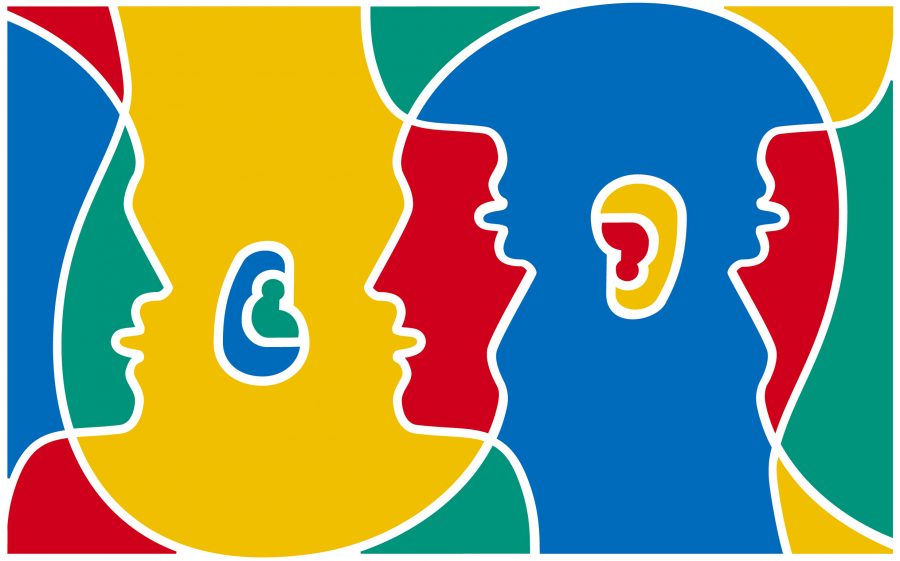
Mutterländische Amtssprache: Bezeichnung: Norwegisch (Norsk) –
Anmerkungen: k. Ang. –
Sprachfamilie: Indoeuropäisch > Germanisch > Nord > Ostskandinavisch > Dänisch-Schwedisch > Dänisch-Bokmål (Indo-European > Germanic > North > East Scandinavian > Danish-Swedish > Danish-Bokmål) –
Anerkennung: De facto-Nationalsprache (de facto national language) –
Sprachstatus: EGIDS: Status 1 Nationalsprache (national) – WAL: sichere Sprache (safe) (Norwegian), WAL: potentiell verwundbare Sprache (potentially vulnerable) (Bokmål) und WAL: potentiell verwundbare Sprache (potentially vulnerable) – ELP: k. Ang.[1] –
ISO 639-1-, -2- und -3-Codes: no, nor, nor (Norwegian): nn, nno, nno (Nynorsk) bzw. nb, nob, nob (Bokmål)[2] –
Glottocodes: norw1258[3] –
Linguasphere-Code: 52-AAA-b (Norsk-W. + Nynorsk) [4] ■
Territoriale Varietät: k. Ang.
[1] Status, Norway, Ethnoloɠue, Languages of the World, SIL International 2020, http://www.ethnologue.com/country/NO/status (aufgerufen am 2020-02-29) Norwegian, Languages, World Atlas of Languages (WAL), UNESCO Atlas of the World’s Endangered Languages, United Nations Educational, Scientific and Cultural Organization (UNESCO) o. J., https://en.wal.unesco.org/languages/norwegian (aufgerufen am 2022-12-16) und Norwegian Bokmål, Languages, World Atlas of Languages (WAL), UNESCO Atlas of the World’s Endangered Languages, United Nations Educational, Scientific and Cultural Organization (UNESCO) o. J., https://en.wal.unesco.org/languages/norwegian-bokmal (aufgerufen am 2022-12-16) und Norwegian Nynorsk, Languages, World Atlas of Languages (WAL), UNESCO Atlas of the World’s Endangered Languages, United Nations Educational, Scientific and Cultural Organization (UNESCO) o. J., https://en.wal.unesco.org/languages/norwegian-nynorsk (aufgerufen am 2022-12-16)
[2] Norwegian, 639 Identifier Documentation: nor, SIL International 2020, https://iso639-3.sil.org/code/nor (aufgerufen am 2020-01-29) und Norwegian Nynorsk, 639 Identifier Documentation: nno, SIL International 2020, https://iso639-3.sil.org/code/nno (aufgerufen am 2020-01-29) und Norwegian Bokmål, 639 Identifier Documentation: nno, SIL International 2020, https://iso639-3.sil.org/code/nob (aufgerufen am 2022-12-12)
[3] Spoken L1 Language: Norwegian, Glottolog, Max Planck Institute for Evolutionary Anthropology o. J., https://glottolog.org/resource/languoid/id/norw1258 (aufgerufen am 2020-01-29) und Dialect: Norwegian Bokmål, Glottolog, Max Planck Institute for Evolutionary Anthropology o. J., https://glottolog.org/resource/languoid/id/norw1259 (aufgerufen am 2020-01-29)
[4] Indo-European phylosector, Linguaspere Register, hortensj-garden.org o. J., http://www.hortensj-garden.org/index.php?tnc=1&tr=lsr&nid=5%3D&lr=t (aufgerufen am 2020-01-22)
Bildquelle/n:
- Logo: European Day of Languages: Council of Europe (COE) | CC0 1.0 Universal
Neueste Kommentare